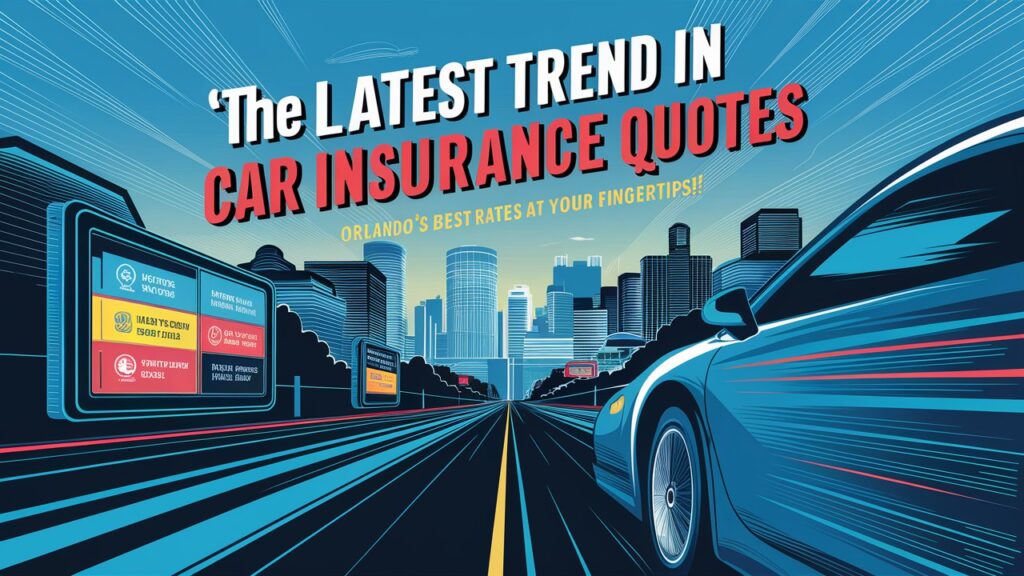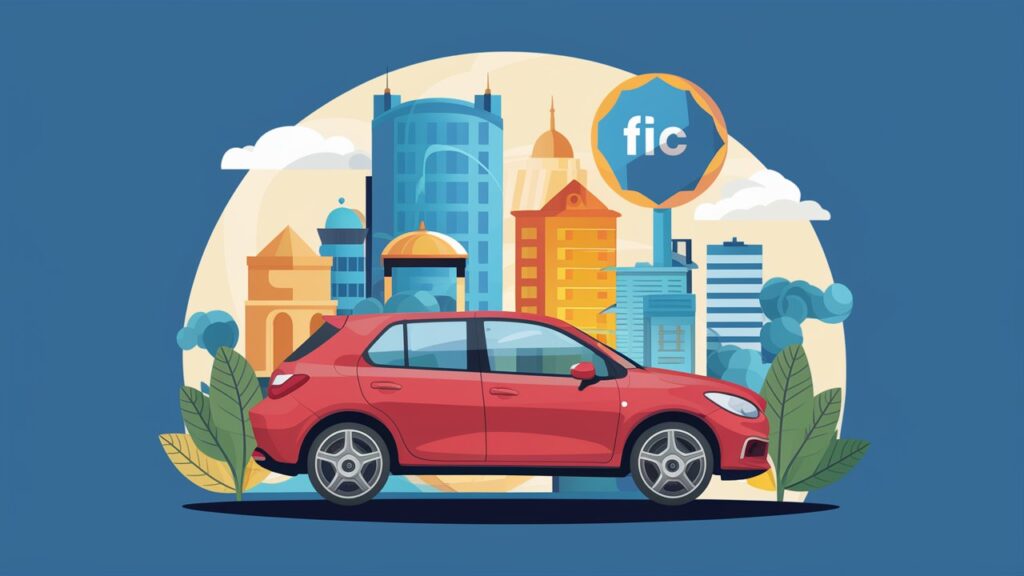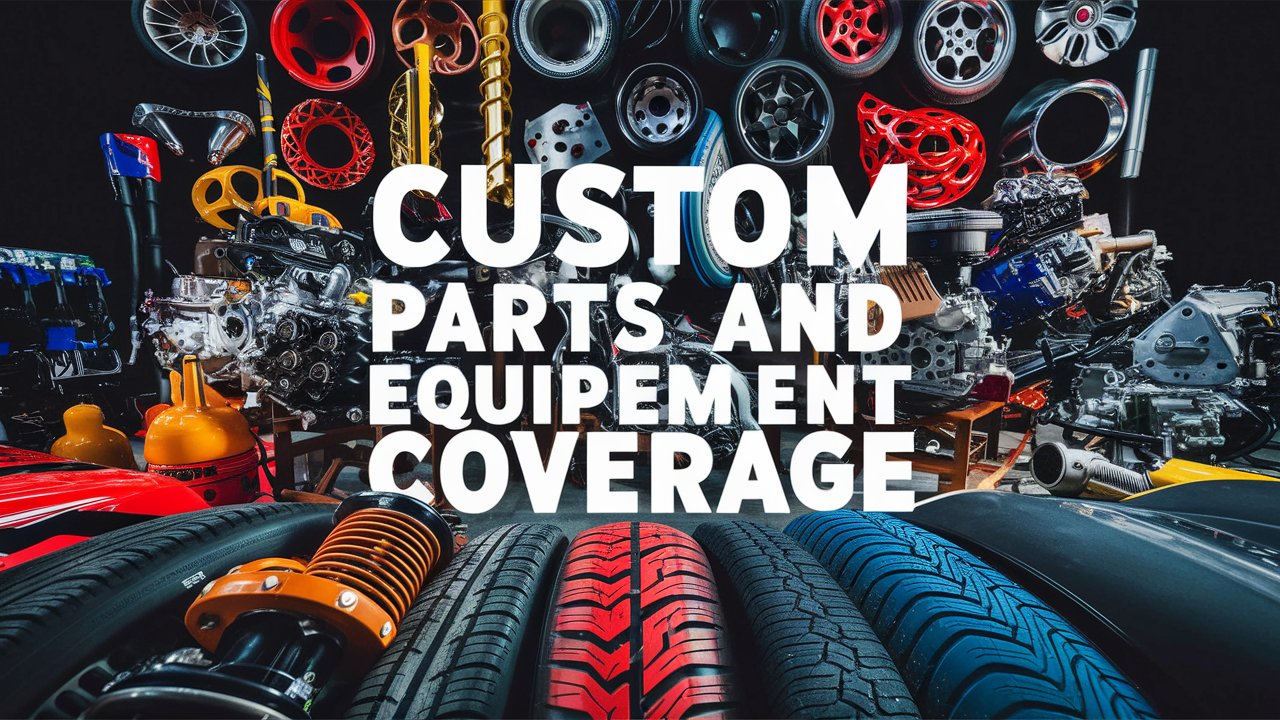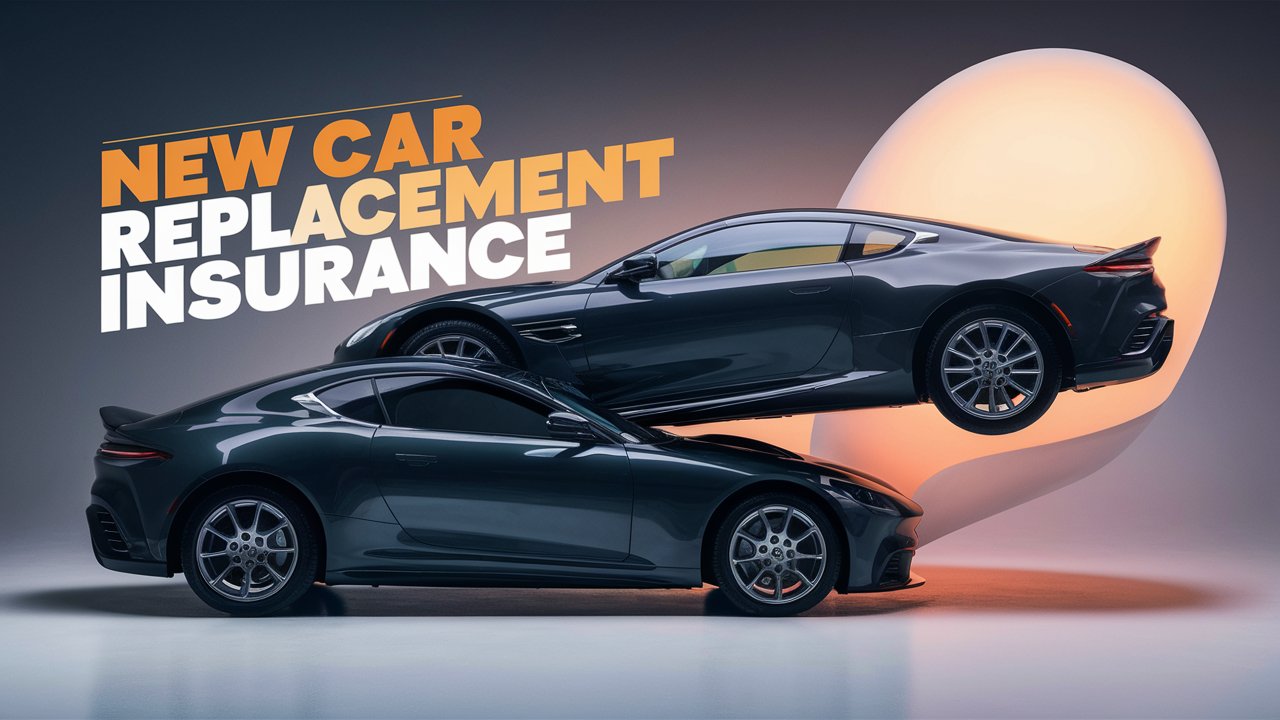Introduction
Car insurance is a necessity for anyone who drives, providing financial protection against accidents, theft, and other unforeseen events. In a bustling city like Orlando, where traffic congestion and the risk of accidents are high, securing the right car insurance is crucial. However, the process of obtaining car insurance quotes has evolved significantly in recent years, influenced by technological advancements, changes in consumer behavior, and new industry practices. This blog post delves into the latest trends in car insurance quotes in Orlando, exploring how these developments are reshaping the way residents obtain and manage their car insurance.
Digital Transformation in Car Insurance
One of the most significant trends in car insurance quotes is the digital transformation of the industry. The days of calling multiple insurance agents or visiting offices to get quotes are rapidly becoming a thing of the past. Instead, digital platforms and mobile apps have taken center stage, offering a seamless and convenient way to obtain car insurance quotes.

Online Comparison Tools
Online comparison tools are revolutionizing how Orlando residents shop for car insurance. These tools allow users to input their information once and receive quotes from multiple insurers instantly. Websites like Compare.com, Insurify, and The Zebra provide comprehensive comparisons, helping consumers find the best rates without the hassle of contacting each insurer individually.
Mobile Apps
Mobile apps are another crucial component of the digital transformation in car insurance. Companies like GEICO, Progressive, and State Farm offer mobile apps that allow users to get quotes, manage their policies, and even file claims directly from their smartphones. These apps often feature user-friendly interfaces, making it easier for customers to navigate the insurance process.
AI and Chatbots
Artificial intelligence (AI) and chatbots are enhancing the customer experience by providing instant support and personalized quotes. Insurers use AI to analyze vast amounts of data and offer more accurate and competitive quotes. Chatbots, available on websites and mobile apps, can answer customer queries in real-time, guide them through the quote process, and even suggest ways to lower premiums.
Usage-Based Insurance (UBI)
Usage-Based Insurance (UBI) is an emerging trend that tailors insurance premiums based on an individual’s driving behavior. This model leverages telematics technology to monitor driving habits such as speed, mileage, and braking patterns. UBI programs reward safe drivers with lower premiums, promoting safer driving habits and potentially reducing the overall number of accidents.
Telematics Devices
Telematics devices, installed in vehicles or available as smartphone apps, collect data on driving behavior. Insurers analyze this data to assess risk and determine premiums. Companies like Allstate’s Drivewise, Progressive’s Snapshot, and State Farm’s Drive Safe & Save are leading the way in UBI, offering discounts to drivers who exhibit safe driving practices.
Pay-Per-Mile Insurance
Pay-per-mile insurance is a subset of UBI that charges premiums based on the number of miles driven. This model is particularly beneficial for individuals who drive infrequently. By paying only for the miles they drive, customers can save significantly on their insurance costs. Insurers like Metromile and Mile Auto are pioneers in this space, providing flexible and affordable options for low-mileage drivers.
Customization and Personalization
Today’s consumers expect personalized experiences in all aspects of their lives, and car insurance is no exception. Insurers are increasingly offering customized policies that cater to the unique needs and preferences of individual customers.
Tailored Coverage Options
Insurers are providing more flexibility in coverage options, allowing customers to choose the specific protections they need. For example, drivers can opt for add-ons like roadside assistance, rental car reimbursement, or gap insurance. This customization ensures that policyholders only pay for the coverage they require, leading to more cost-effective insurance solutions.

Personalized Discounts
In addition to UBI-based discounts, insurers are offering personalized discounts based on various factors. These can include safe driving records, good student discounts, bundling multiple policies (such as home and auto insurance), and even discounts for certain professions or affiliations. By leveraging data analytics, insurers can identify potential discounts and offer tailored savings to their customers.
Insurtech Innovations
Insurtech, the fusion of insurance and technology, is driving significant innovations in the car insurance industry. These technological advancements are streamlining processes, enhancing customer experiences, and making car insurance more accessible and affordable.
Blockchain Technology
Blockchain technology is being explored for its potential to enhance transparency and security in the insurance industry. Smart contracts on blockchain can automate claims processing, reducing fraud and ensuring faster settlements. While still in its early stages, blockchain’s potential to transform car insurance cannot be understated.
Big Data and Predictive Analytics
Insurers are leveraging big data and predictive analytics to refine their underwriting processes and offer more competitive quotes. By analyzing data from various sources, including social media, telematics, and historical claims data, insurers can better assess risk and price policies more accurately. This results in fairer premiums and improved customer satisfaction.
Digital Claims Processing
Digital claims processing is another area where insurtech is making a significant impact. Traditional claims processes can be time-consuming and cumbersome, involving paperwork and lengthy wait times. Digital solutions, such as AI-powered claims assessment and mobile claims filing, are streamlining this process. Customers can now file claims through mobile apps, upload photos of the damage, and receive instant assessments, leading to faster and more efficient claims resolutions.
The Role of Customer Reviews and Social Media
Customer reviews and social media have become powerful tools in the car insurance industry. They provide valuable insights into the experiences of other customers, helping individuals make informed decisions when selecting an insurer.
Online Reviews and Ratings
Websites like Yelp, Google Reviews, and Trustpilot offer platforms for customers to share their experiences with various insurers. These reviews often highlight aspects such as customer service, claims handling, and overall satisfaction. Prospective buyers can use this information to gauge the reliability and reputation of different insurers in Orlando.
Social Media Engagement
Insurance companies are increasingly leveraging social media to engage with customers and provide timely information. Platforms like Facebook, Twitter, and Instagram allow insurers to interact with customers, address concerns, and promote their services. Social media also serves as a valuable feedback mechanism, enabling insurers to understand customer needs and improve their offerings.
Green and Eco-Friendly Insurance Options
As environmental awareness grows, many consumers are seeking eco-friendly insurance options. Insurers are responding to this demand by offering green policies and incentives for environmentally conscious drivers.
Discounts for Hybrid and Electric Vehicles
Drivers of hybrid and electric vehicles often qualify for discounts on their car insurance. These vehicles are generally considered less risky to insure due to their advanced safety features and lower environmental impact. Insurers like Travelers and Liberty Mutual offer discounts specifically for hybrid and electric car owners.

Paperless Policies
To reduce their carbon footprint, many insurers are promoting paperless policies. Customers can receive their policy documents, billing statements, and other communications electronically, minimizing paper waste. Additionally, some insurers offer discounts to customers who opt for paperless billing and policy management.
The Impact of COVID-19 on Car Insurance
The COVID-19 pandemic has had a profound impact on the car insurance industry, influencing trends and changing consumer behavior. As a result, insurers have had to adapt to new realities and provide solutions that address the evolving needs of their customers.
Reduced Driving and Premium Adjustments
During the pandemic, many people drove less due to lockdowns and remote work arrangements. This led to a decrease in the number of accidents and claims, prompting insurers to offer premium refunds or reductions. Companies like Allstate, GEICO, and State Farm provided credits or refunds to their customers, acknowledging the reduced risk during this period.
Flexible Payment Options
The financial strain caused by the pandemic led many insurers to offer more flexible payment options. This included deferred payment plans, extended grace periods, and waivers of late fees. These measures helped alleviate the financial burden on policyholders and ensured continuous coverage during challenging times.
Conclusion
The landscape of car insurance quotes in Orlando is evolving rapidly, driven by technological advancements, changing consumer preferences, and external factors like the COVID-19 pandemic. Digital transformation, usage-based insurance, customization, insurtech innovations, and the influence of customer reviews and social media are all contributing to a more dynamic and customer-centric car insurance market.
As these trends continue to shape the industry, Orlando residents can expect more convenient, personalized, and affordable car insurance solutions. By staying informed about the latest developments and leveraging the available tools and resources, consumers can make well-informed decisions and secure the best possible coverage for their needs. Whether it’s through digital platforms, telematics-based programs, or eco-friendly options, the future of car insurance in Orlando promises to be more efficient and responsive to the needs of today’s drivers.
For more details please visit our home page: Click Here

